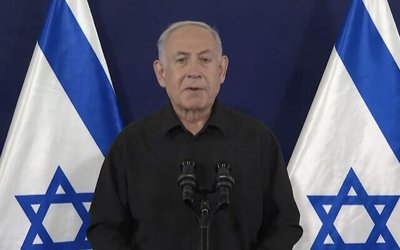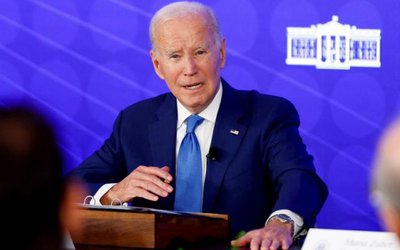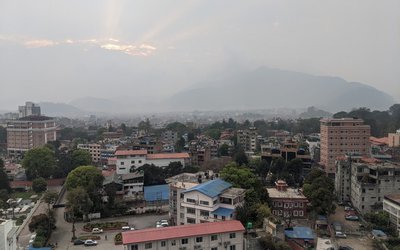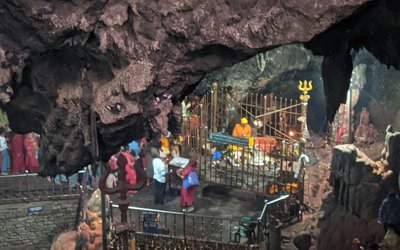By blocking the Teesta accord, Mamata Banerjee has shown that States can no longer be taken for granted by the Centre on foreign policy issues.
Seen as perhaps the UPA Government’s biggest foreign policy initiative since the India-United States nuclear agreement, the Prime Minister’s recent visit to Bangladesh did not meet all its desired goals. The Teesta water-sharing agreement could not be reached. Ms Mamata Banerjee, Chief Minister of West Bengal, objected to the division of water proposed by the Governments of India and Bangladesh. This was not enough, she said, to meet the needs of West Bengal.
Maybe Ms Banerjee is right and maybe she is not. The matter is open to debate. A variety of statistics has been put forward, citing the volume of water available at a particular geographical location or in a specific season. No doubt some of the blame lies with inept political management by the Prime Minister’s Office. The PMO did not expend enough resources in selling the deal politically to Ms Banerjee and took her for granted.
In the immediate aftermath of the Teesta fiasco, there was fierce debate on whether Ms Banerjee acted correctly or temperamentally. There were arguments that foreign policy and international treaties were the prerogative of the Union Government, and that by bringing in local politics Ms Banerjee was being irresponsible. Her conduct was contrasted with that of Jyoti Basu in 1992. That year, as Chief Minister of West Bengal, Basu had cooperated with the then Congress Government in New Delhi when the Tin Bigha corridor was transferred to Bangladesh.
How fair are these assessments? Was Basu really more far-sighted and enlightened than Ms Banerjee? Can foreign policy and domestic politics truly be sequestered? After all, as early as 1920, the US Senate refused to ratify the Treaty of Versailles and allow President Woodrow Wilson to take his country into the League of Nations. With this, Wilson’s cherished hope of institutionalising peace in Europe was thwarted. Provincial politicians, suspicious of “entangling alliances”, kept the US out of the international system. This was one of the many causes of a second war in Europe in a generation.
Delaying an agreement on the Teesta is not as dramatic as keeping the US out of the League of Nations. Certainly, it will not trigger a war. Nevertheless the fact is that diplomacy, however enlightened and far-reaching in its motivations, can only be conducted with domestic support — or at least in the absence of domestic hostility.
Indian foreign policy is at an interesting and even paradoxical juncture. At one level greater economic engagement and international obligations have curtailed sovereignty and India’s autonomy to act as it wants. For instance, the series of nuclear deals India has signed make it difficult — not impossible, but just more expensive — to test a nuclear device as and when it pleases. In 2001-02, India was ready for war with Pakistan but didn’t actually enter into one because of potential setbacks to business and trade. This calculation would not have come into play in, say, 1971 or 1981, in a pre-globalisation, insular economic era.
Simultaneously, greater democratisation in Indian society has created new domestic sources of foreign policy. Here the case of Basu’s no-fuss acceptance of the Tin Bigha accord, as against Ms Banerjee’s refusal to budge on the Teesta issue, is telling.
The Tin Bigha transfer took place 19 years ago. The CPI(M) was then at its zenith in West Bengal, midway through a 34-year run in power. Basu was unchallenged in the party, in the Left Front coalition and in the State. The Congress was a weak opposition — in any case, the central Congress was promoting the transfer — and Ms Banerjee was only a junior politician. There were no strong regional voices of protest. Some members of the Forward Bloc, a small Left Front partner with a hold in Cooch Behar (the north Bengal district incorporating Tin Bigha), did dissent, but Basu easily brushed them aside.
Today, Ms Banerjee faces a very different, much more competitive polity in West Bengal. Teesta is a hot button in north Bengal (north of Malda district), where the Trinamool Congress is relatively weak. Its stronghold is south Bengal.
In north Bengal, the Left parties — such as the CPI(M) and the Forward Bloc — have significant pockets of support, especially among Partition refugee communities who tend to have entrenched opinions on Bangladesh. Even the BJP, otherwise a non-entity in the State, has catchment areas here. Finally, Teesta is crucial in Darjeeling, where Ms Banerjee has just won over the Gorkha leadership with promises of economic development and administrative autonomy.
As such, the political environment Ms Banerjee faces is far more challenging than what Basu encountered in 1992. This makes her risk-averse and less willing to see the larger diplomatic point, rather than the smaller local one. In a fundamental way, Teesta is not an India and Bangladesh issue. It is one to negotiate between New Delhi, Dhaka and Kolkata.
Is this surprising? Kerala delayed the India-Asean free trade agreement because it feared import of cheap palm oil from Malaysia and Indonesia would hurt its coconut oil industry. Would the Malayali coconut farmer or oil producer be easily persuaded simply because earnest analysts in New Delhi urged deeper Indian engagement with South-East Asia was needed to counter Chinese influence?
The Teesta conundrum will recur in the coming years, as India hastens a process of economic integration with its neighbours. Individual states will be the key to this integration — Tamil Nadu and Kerala in the case of Sri Lanka, Punjab in the case of Pakistan, West Bengal in the case of Bangladesh of course. On occasions, the State will play speed-breaker. At other times, it could demand faster movement than the Ministry of External Affairs is comfortable with.
Take the long-pending river waters issue with Nepal. While various measures have been taken, the taming of rivers and the building of dams and hydroelectricity capacities in Nepal remains a substantially unfulfilled aspiration. Diplomats in South Block are in no hurry, conscious (even over-conscious) of how much leeway they should allow Kathmandu. For whole communities in eastern Uttar Pradesh and Bihar, where ferocious floods are a regular feature, the urgency is far greater.
Sooner or later, an influential Chief Minister in Patna, with clout at the Centre, is going to push the Ministry of External Affairs to make concessions to Nepal and give him and his people the river waters agreement they want — diplomatic gamesmanship be damned. When that happens, it will be an inversion of the Teesta model, but just as suggestive of the localisation of foreign policy
http://www.dailypioneer.com/pioneer-news/edit/6844-road-to-dhaka-is-via-kolkata-.html
- TANAHU HYDROPOWER PROEJCT: A Significant Achievement
- Apr 15, 2024
- AMBASSADOR HANAN GODAR: Sharing Pain With A Nepali Family
- Mar 30, 2024
- VISIT OF KfW AND EIB TO NEPAL : Mission Matters
- Mar 25, 2024
- NEPAL BRITAIN SOCIETY: Pratima Pande's Leadership
- Mar 24, 2024
- NEPAL ARMY DAY: Time To Recall Glory
- Mar 15, 2024
















